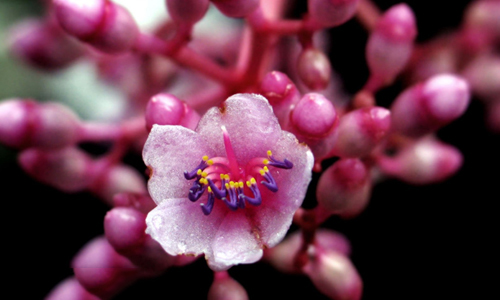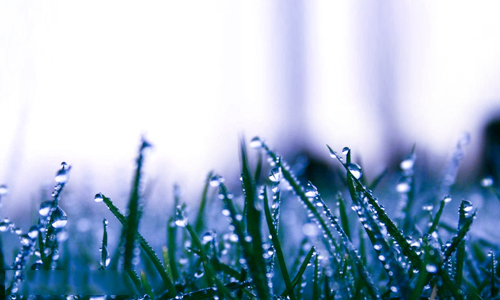小学英语常考句型分类汇总2020最新
学语言不能忽略巩固阶段,要不断地用它。小偏整理了小学英语常考句型分类汇总2020最新,感谢您的每一次阅读。
小学英语常考句型分类汇总2020最新
☎ 一般疑问句
1、Did you read books? 你读书了吗?
Yes, I did.是的,我读过了。
No, I didn’t. 不,我没有读过。
2、Is she quiet? 她文静吗?
No,she isn’t. She’s very active.
不,她不。她很活跃。
she strict? 她严格吗?
Yes,she is, but she’s very kind.
是的,她是,但是她很和蔼。
3、Is this a teacher’s desk? 这是一张讲台桌吗?
Is it cold? 冷吗?
Is her birthday in June?
她的生日在六月吗?
Is this yourT-shirt?
这是你的T恤衫吗?
Yes,it is. 是的。
No, itisn’t. / No, it’s not. 不,不是的。
4、 Can you make the bed?
你会铺床吗?
Can you use a computer?
你会使用电脑吗?
Yes, I can. 是的,我会。
No, I can’t. 不,我不会。
5、Are they ducks? 它们是鸭子吗?
Are they eating the honey? 它们吃蜂蜜吗?
Yes,they are. 是的,它们是。
No,they aren’t. 不,它们不是。
6、Is there a forest in the park?
公园里有一个森林吗?
Is there a river?
那里有条河吗?
Yes,there is. 是的,那里有。
No,there aren’t. 不,那里没有。
7、Are there any pandas in the mountains?
山里有一些熊猫吗?
Are there any fish in the rivers?
河里有一些鱼吗?
Yes,there are. 是的,那里有。
No,there aren’t. 不,那里没有。
8、Are you eating lunch?
你(们)正在吃午餐吗?
Yes, I am. / Yes, we are.
是的,我正在吃。/ 是的,我们正在吃。
No, I am not. / No, we aren’t.
不,我没有在吃。/ 不,我们没有在吃。
9、Is he playing chess?
他正在下棋吗?
Yes,he is. 是的,他是。
No, he isn’t. 不,他没有。
10、Is she counting insects?
她正在数昆虫吗?
Yes,she is. 是的,她是。
No,she isn’t.不,她没有。
11、Does she/he teach English?
她(他)教英语吗?
Yes,she/he does. 是的,她(他)是。
No,she/he doesn’t. 不,她(他)不是。
☎ 谈论时间
What time is it? 几点钟?
It’s two o’clock. 两点钟。
It’s 9:45. It’s time for math class.
九点四十五。是上数学课的时间了。
What day is it today? 今天星期几?
It’s Wednesday. 星期三。
When do you eat dinner?
你几点吃晚餐?
I eat dinner at 7:00 in the evening.
我晚上7点钟吃晚餐。
When do you get up? 你几点起床?
I usually get up at 12:00 noon.
我一般中午12点钟起床。
When is your birthday?
你的生日是什么时候?
It’sin May. 在五月。
My birthday is in June.
我的生日在六月。
Uncle Bill’s birthday is in June, too.
比尔叔叔的生日也在六月。
What’s the date?几月几日?
June 9th.六月九日。
☎ 谈论颜色
What colour is it? 什么颜色?
It’s white. 白色。
☎ 谈论地点
Where are you going this afternoon?
下午你打算去哪?
I’m going to the bookstore.
我打算去书店。
Where did you go on your holiday?
假期你去了哪?
I went to Xinjiang. 我去了新疆。
Where does she work? 她在哪工作?
She works in a hospital. 她在医院工作。
Where does the rain come from? 雨从哪来?
It comes from the clouds. 它从云里来。
Where is the cinema, please? 请问电影院在哪?
It’s next to the hospital. 在医院旁边。
Turn left at the cinema, then go straight. It’s on the left.
在电影那左转,然后直走。它在你的左边。
There are two bedrooms, a kitchen, a bathroom and aliving room.
那有两个卧室,一个厨房,一个卫生间和一个客厅。
There is a mirror, a bed and a big closet.
那有一面镜子,一张床和一个大衣柜。
The closet is near the table.
衣柜在桌子的附近。
Many clothes are in the closet.
很多的衣服在衣柜里。
Thet rash bin is behind the door.
垃圾桶在门后。
☎ 谈论价格
How much is it?这个多少钱?
It’s ten yuan. 十元。
How much arethey? 它们多少钱?
They’re three yuan. 它们三元
☎ 谈论数量
How many horsesare there? 那有多少匹马?
Twelve.十二匹。
☎ 谈论人物
Who’s your English teacher? 你的英语老师是谁?
Mr Carter. 卡特先生。
What’she like?他长什么样?
He’s tall and strong. 他又高又强壮。
How old are you? 你几岁?
☎ 谈论喜好
What’s your favourite fruit? 你最喜欢的水果是什么?
I like apples. They’re sweet. 我喜欢苹果。它们很甜。
I like fruit. But I don’t like grapes. They’re sour. 我喜欢水果。但我不喜欢葡萄。它们很酸。
Which season do you like best? 你最喜欢哪个季节?
like winter best. 我最喜欢冬天。
Summeris good, but fall is my favourite season. 夏天很好,但秋天是我
最喜欢的季节。
Why do you like summer? 你为什么喜欢夏天?
Because I can swim in the lake. 因为我可以在湖里游泳。
Why do you like winter? 你为什么喜欢冬天?
Because I can sleep a long time. 因为我可以睡很长的时间。
What’s your hobby? 你的爱好是什么?
I like collecting stamps. 我喜欢收集邮票。
He likes collecting stamps, too. 他也喜欢收集邮票。
☎ 谈论事情
What did you do last weekend? 你上个周末做了什么?
I played foot ball. 我踢了足球。
What are you going to buy? 你打算去买什么?
I am going to buy a comic book. 我打算去买一本漫画书。
What are you going to do on the weekend? 周末你打算去做什么?
What do you doon the weekend? 你周末做什么?
Usually I watch TV and go shopping. 一般我看电视和去购物。
Sometimes I visit my grandparents. 有时候我去拜访我的祖父母。
I often play football. 我经常去踢足球。
Sometimes I go hiking. 有时候我去远足。
What do youhave on Thursdays? 星期四你们有什么课?
We have English, math and science on Thursdays. 星期四我们有英语,数学和科学课。
What do you doon Saturdays? 星期六你做什么?
I watch TV on Saturdays. 星期六我看电视。
What about you?你呢?
I do my homework, too. 我也做我的家庭作业。
What do you have for lunch on Mondays? 星期一你中餐吃什么?
We have tomatoes, tofu and fish. 我们吃西红柿,豆腐和鱼。
☎ 谈论方式
How do you go to school, Sarah? 萨拉,你怎么去学校?
Usually I go to school on foot. 一般我走路去学校。
Sometimes I go by bike. 有时候我骑自行车。
How can I get to Zhongshan Park? 我怎么去中山公园?
You can go by the No. 15 bus. 你可以坐15路公共汽车。
How did you go there? 你怎么去那?
I went by train. 我坐火车去。
☎ 谈论身体和心情
How are you,Liu Yun? 刘云,你怎么样?
You look so happy. 你看起来很开心。
How are you,Sarah? 萨拉,你怎么样?
You look sad today. 今天你看起来很伤心。
What’s the matter? 怎么了?
My throat is sore. My nose hurts. 我的喉咙痛。我的鼻子痛。
☎ 谈论体重和身高
How heavy are you? 你多少重?
I’m 48kg. 我48公斤。
I’m thinner than you, and shorter. 我比你瘦和矮。
How tall areyou? 你多高?
I’m 164 cm tall. 我164厘米高。
You’re shorter than me. 你比我矮。
You’re 4 cm taller than me. 你比我高四厘米。
认知策略
小学生接收英语的听与读方面,形式单一。绝大部分学生停留在听老师讲课和跟老师朗读这个层面。这固然重要,但是老师以外的信息更加丰富,而且又有选择性。如同学发言、录音磁带、广播电视等,但首先要利用好配套的录音磁带。我在班里做了一个简单的调查,结果发现绝大多数学生都在开学初就买了与教材配套的录音磁带,但回到家真正听过录音磁带的同学为数很少,其中包括一些英语成绩优秀的学生。好学生的理由是录音太简单了,我不用听。一些成绩相对较差的学生则抱怨录音带朗读快,听不懂,所以以后就不听了。其实,能够听懂也好,不能够听懂也好,都应该听,只不过是程度不同导致了听的次数多少的差异。英语基础薄弱的学生可以先逐句听,再整体听,多听几次。最好先不要打开课本对照地听,只有听了几次还没听清楚时方可看看课本。
我们学习英语就怕说。很多学生说英语时,是先想中文,再译成英语,没有养成用英语思维的习惯。因此,平时应在课堂上逐步训练用英语解释英语的能力。在我国,课堂是说英语的主阵地。我们正是因为没有说英语的环境而增加了英语学习的难度。在家与父母说英语或与老外交谈确实是英语学习的好机会,但都有很大局限性。唯一不受时空限制的练习方式就是自问自答、自言自语。
学用结合
我国语言学家吕叔湘说过:“学语言不能忽略巩固阶段,要不断地用它。”由此可见,英语的学与用是密不可分的。英语学习者要善于模仿,勇于实践。学习语言就是为了交际。儿童刚学会“爸爸”、“妈妈”两个词时,他们就能大胆地使用,看见所有的男性都叫“爸爸”,看见所有的女性都叫“妈妈”。小学生学习英语就要像孩提时那样敢于在犯错误和使用中学习英语。在启蒙阶段,英语词汇有限,可混合使用汉语与英语,如说“谢谢”时就要想到“Thank you!”,刚学习apple后,可以回家对妈妈说:“Mum, 我要吃apple”。练习使用英语的方法有多种,例如,同学之间英语对话,参加英语角,网上英语聊天,写英语日记等等。
小学英语学习方法千千万,教学的方式也各有不同,不一样的学习方法,效果也会不同,希望在小学英语教育中,老师们应该有意识的去帮助学生们找到适合自己的学习方法和策略,这样才能够让学生轻松、愉快、高效的完成学习,为以后的英语写作打下一个好的基础。











